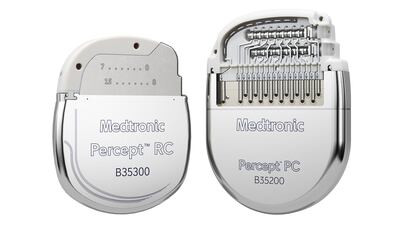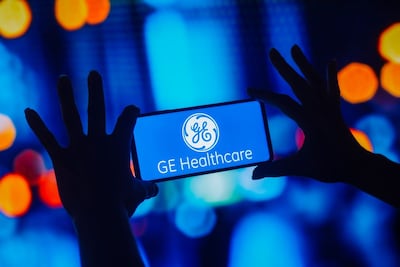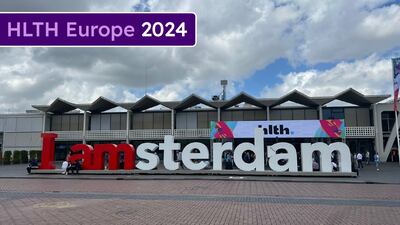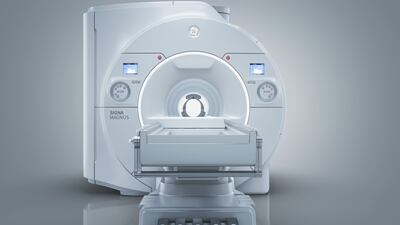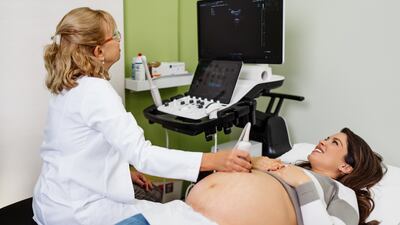Diagnostic Imaging
This week, Neuralink announced it received US FDA breakthrough device designation for a device to restore sight; medtechs Discure and DeepLook secured new funding; FDA pump recalls from B. Braun Medical and Fresenius Kabi; Axonics prevails in patent infringement lawsuit with Medtronic; Merit Medical buys Cook Medical for $210m.
This week, a medical group sued the FDA to block a lab-developed test rule; the FDA published guidance on device classifications; Defibtec issued a recall of its chest compression device and ICU Medical updated instructions for its infusion pump batteries; Maui Imaging raised a $4m DOD grant to put imaging tech into military-based trauma units.
Medtronic receives US FDA approval for deep brain stimulation surgery for people with Parkinson’s and essential tremors while the patient is under general anesthesia, making it the first and only company to offer DBS surgery while the patient is asleep.
The global leaders in imaging have set full-year sales growth outlooks of low to mid-single digits, with China market headwinds due to prevail throughout 2024. Pent-up China demand will be the upside from 2025, industry believes.
This week, the US FDA sent a warning letter to maker of batteries for AEDs, AMCO; Virtual Incision successfully completed the first hysterectomy its miniaturized robotic-assisted surgery device MIRA; The DOJ finalized a rule that requires government-operated health care facilities to provide accessible equipment for people with disabilities; the FDA compiled its resources on reprocessed medical devices onto a new web page; and more.
GE HealthCare announced it will team up with AWS to build new generative AI models and applications that can help doctors find key patient information faster and help with diagnosing and treating patients.
This week, Nipro Medical Corp. announced it will invest $397.8m to build a US-based production plant, generating 232 new jobs; both Baxter and Hamilton announced ventilator recalls; Imperative Care wins FDA clearance for its stroke catheter; Intelligent Ultrasound Group plc entered into a conditional sale and purchase deal to sell its Clinical AI business to GE HealthCare for £40.5m; RMI distributed 350m rapid test kits in the fight against HIV/AIDS; Jiangsu Shenli Medical Production Co., Ltd received a second FDA warning letter about quality and safety of plastic syringes.
AI is all the rage these days, so it comes as no surprise that the topic of AI technologies ranked high during the panel discussions at the HLTH Europe event, held from 17-20 June in Amsterdam.
The pathway, which would be separate from breakthrough device reimbursement, would allow new AI technology to be reimbursed based on “clinical value and public stakeholder engagement.”
Medtech Insight talked to two leaders at the Alzheimer’s Drug Discovery Foundation about current therapies and the role of biomarkers and digital tools to build on recent advancements in the space and accelerate progress to identify the disease early and slow cognitive decline.
This week, the ACLA filed a lawsuit against the US FDA; Philips recalled around 100,000 ventilators; women’s health companies Natural Cycles and Gameto padded their coffers; and Canary Medical and J&J’s Ethicon received FDA nods.
Of the 151 AI/ML devices added from August 2023 to March 2024, 117 were radiological devices.
AI Medical Technology has been busy, with publications demonstrating its lead product’s potential in melanoma, ongoing fundraising and board appointments.
GE HealthCare announced today a new investigational MRI, which will be used in collaboration with researchers at Boston’s Brigham and Women’s Hospital, promises to help researchers better understand complex neurological diseases.
This week, Philips Respironics reached a $1.1b settlement affecting CPAP and other breathing devices. Toku announced it received US FDA breakthrough device designation for its MyKidneyAI technology. This May, the FDA will hold its REdI conference focusing on innovation in medical product development and hold another townhall focusing on considerations for selecting a sterilization modality.
From X-ray film in 1936 to the world’s first digital X-ray system in 1983, Fujifilm has a long heritage in medical diagnostics.
This week, the US and UK announced a partnership to promote AI safety. Boston Scientific recalls embolic agent. LumiCell received FDA approval for its imaging agent to detect residual cancer. Scout receives an award to develop an STI test; and Osso VR leverages the Apple Vision Pro for VR medical training.
Voluson Signature 20 and 18 ultrasound provides clinicians with workflow efficiencies in detecting female reproductive health problems, especially those related to pregnancy.
Philips CEO Roy Jakobs talks to Medtech Insight about the medtech firm’s decade-long history of embedding AI into its products and what he expects from the newly released draft framework by the National Academy of Medicine, which he helped develop as co-chair of the Steering Committee.
At the recent Precision Med Tri-Con conference, health care leaders and AI enthusiasts Eric Topol and Doug Flora discussed how AI integration will change the way doctors practice medicine and patients receive care.
ADVERTISEMENT


